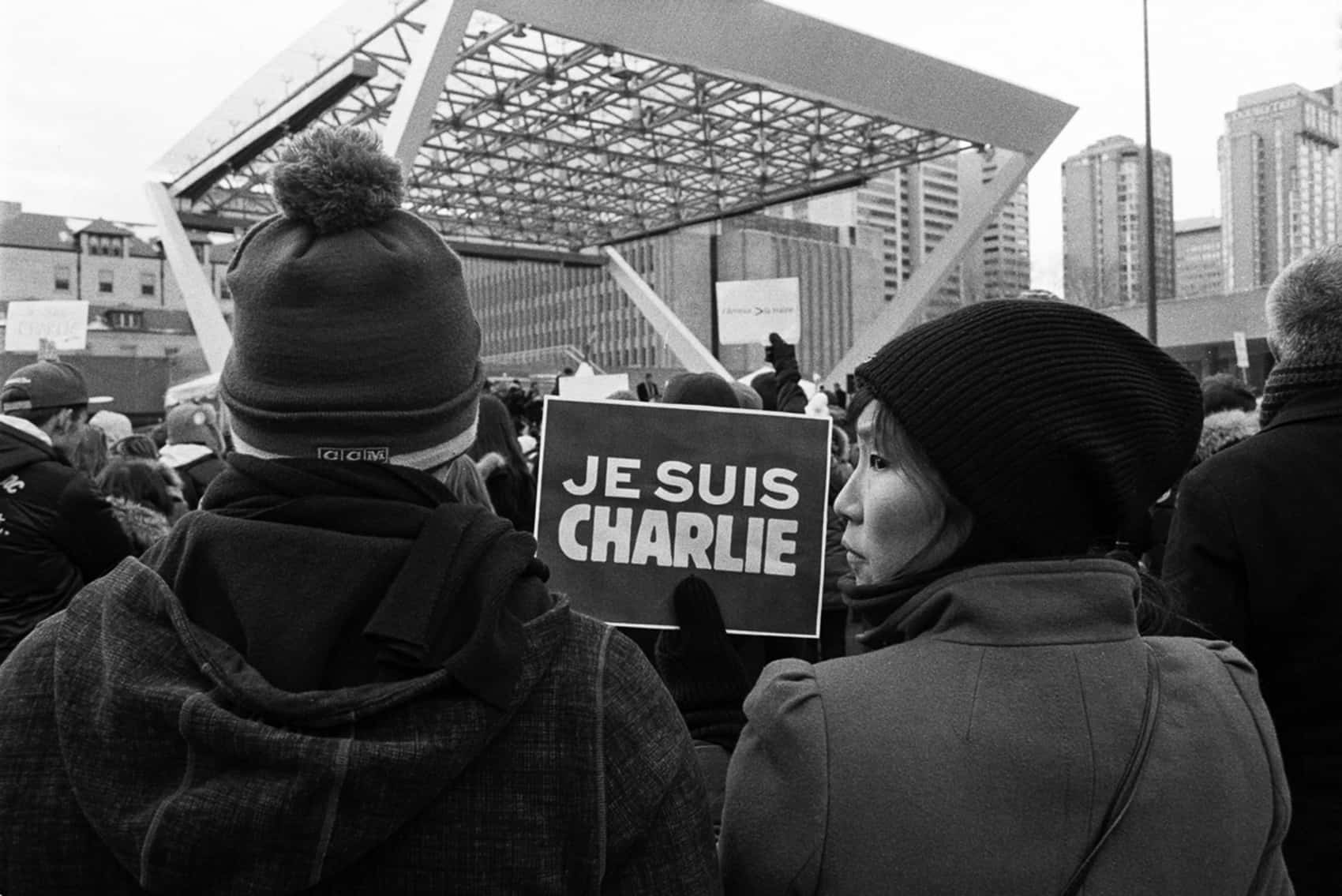Some came with big cardboard pencils, while others carried signs. Hundreds rallied together in front of Toronto City Hall on Sunday, January 11 to make a stand for freedom of expression in the wake of the recent attack against Charlie Hebdo, the satirical French newspaper.
The rally was organized mostly through social media by a group of volunteers that included University of Toronto associate professor Grégoire Holtz.
Holtz, who teaches renaissance literature at the U of T French Department, described himself as a “long-time Charlie Hebdo reader,” saying he tried to explain the magazine and the attacks to his students “in the most pedagogical way.”
After attending a rally on the day of the attacks, Holtz and his wife contacted the organizer to offer their help.
A group of supporters then planned a new rally for the following Sunday.
“We did it because we realized that otherwise maybe nothing would have been done,” Holtz says.
Holtz says he took charge of contacting the police and the local media, helped to decide which songs would be sung, and bought a book of condolences as a gift to the French consulate.
Showing support for their peers demonstrating in Paris, many U of T students from France also attended the rally.
Camille Charbit, an exchange student, says that when she first heard of the attack, it seemed surreal.
“I quickly got in touch with my mom, who works in Paris, to check on her and see how things were there. It is hard to imagine what the atmosphere must have been like when I’m so far away,” she says.
Anne-Cécile Lasnier Confolant, also an exchange student, admits that her first reaction was “stupor.”
Like Lasnier Confolant, many of the French students in attendance said that attending the rally was a matter of duty.
“[B]eing present is a way to support my country and the freedom I so strongly believes in,” she says.
Holtz says he is glad the event did not turn out to be “purely French” and that the Francophone and Anglophone communities instead stood together.
After speeches by Toronto Mayor John Tory and federal Finance Minister Joe Oliver, volunteers took the stage and began singing songs.
“La Marseillaise” was played, as well as some songs from George Brassen, a famous French singer known for his political engagement.
After observing two minutes of silence, supporters were invited to write a few of their own words in the book of condolences.


